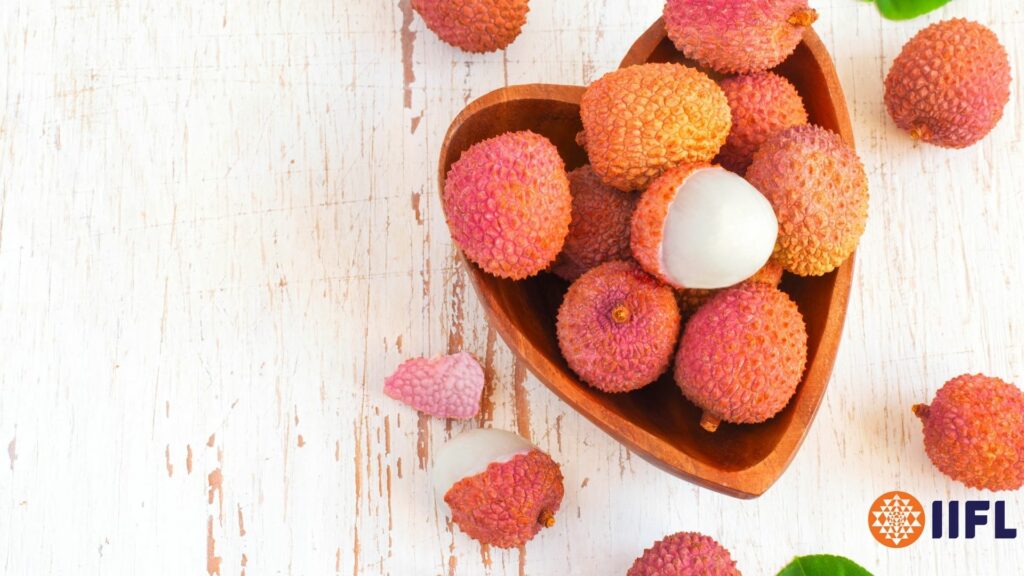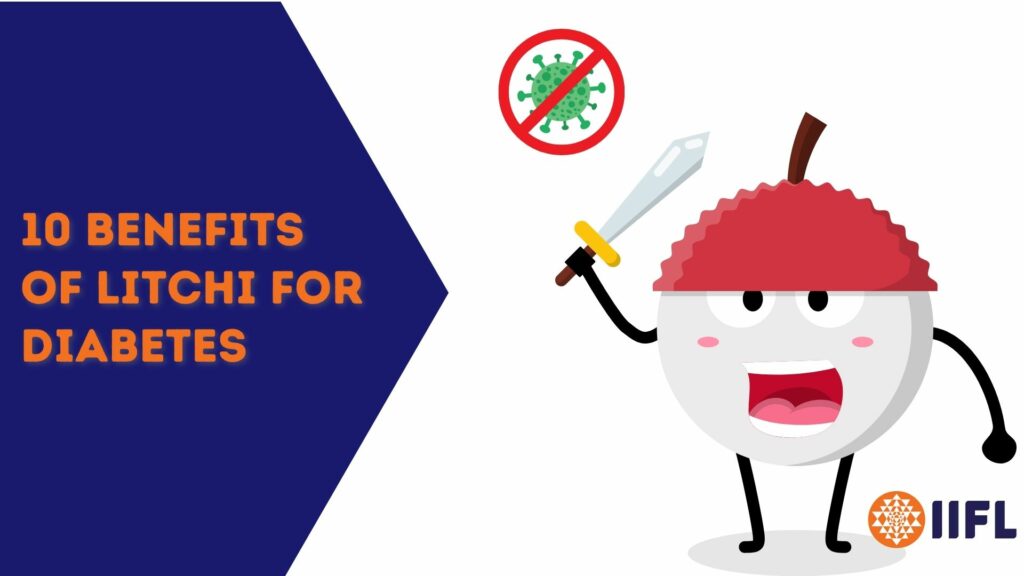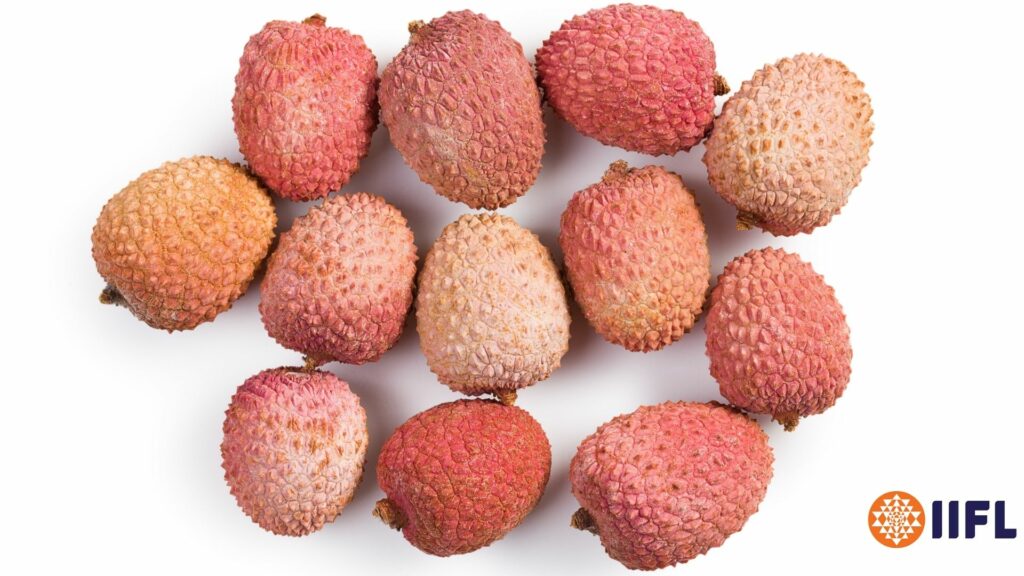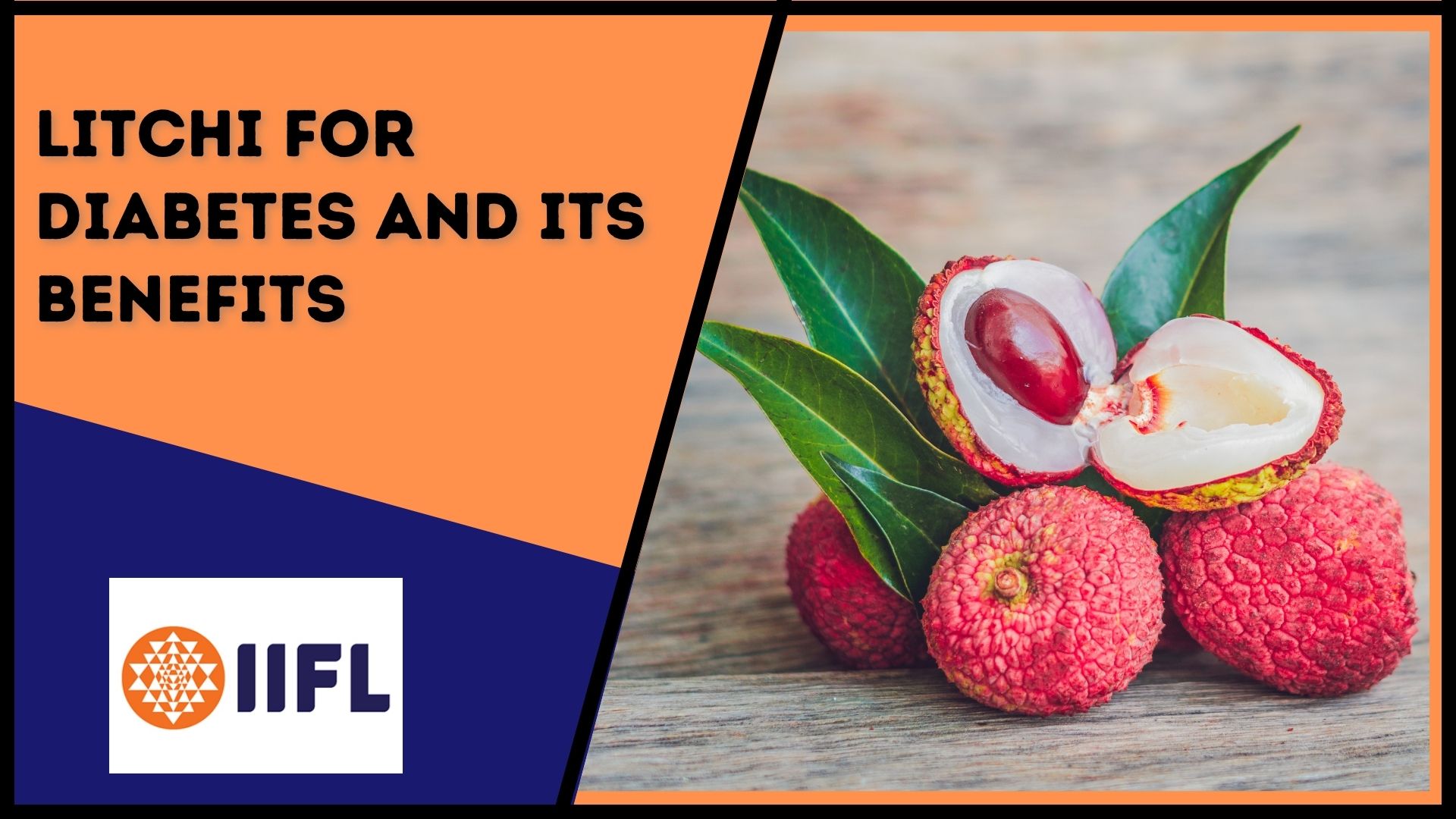Litchi is a fruit that many people like to eat. Many fruits play an important role in diabetes that contain numerous bioactive compounds to help lower glucose levels and increase immunity to prevent diabetes-related complications. Litchis have many health benefits for diabetes.

Litchi has high potassium that prevents blood pressure spikes. It provides high fiber to keep the heart-healthy. Litchi is also rich in vitamin C that helps in boosting immunity, and keeps skin healthy.
- Top 10 Benefits of Litchi For Diabetes
- What amount of Litchi should be eaten for diabetes?
- Downsides Of Litchi For Diabetics
- Is Litchi Good for Diabetic Patients?
- How many litchis can a diabetic eat?
- To Conclude
Top 10 Benefits of Litchi For Diabetes

Here are the benefits of Litchi for diabetes-
- Many bioactive compounds prevent or reduce diabetes-related problems.
- Lychee provides nutrients.
- Control sugar levels in the body.
- It has many phytochemicals to offer, such as saponin, stigmasterol, leucocyanidin, malvidin, glycosides, and procyanidin A2 and B2.
- Increase insulin production in the body.
- Regulates glucose level
- It also provides coolness in the summer season.
- It has antioxidant, anti-diabetic properties, and anti-inflammatory properties.
- Litchi reduces the effects of free radicals.
- Consumption of Litchi also enhances the immune system.
What amount of Litchi should be eaten for diabetes?
Litchi for diabetics should be eaten in moderation. Patients with diabetes need to take good care of their calories and thus consume litchis in moderation because litchis are high in natural sugars, which is not suitable for people with diabetes. However, it is a delicious fruit with a wide range of health benefits. People who don’t have diabetes can get these benefits by eating Litchi. Mentioned below are the benefits of Litchi for everyone:- Lychee is an immunity booster;
- It secures you against heart diseases.
- Protect from Alzheimer’s
- Litchi is a fiber of treasure
Downsides Of Litchi For Diabetics
- Overeating Litchi can raise your blood sugars and also your diabetic condition.
- Excess consumption of Litchi can also increase your conditions, such as internal bleeding.
- It may give rise to allergic reactions in some people.
- In the body, Litchi may cause hormonal dysfunction and imbalance.
- It may cause infections internally in pregnant women.
Is Litchi Good for Diabetic Patients?
Litchis are a safe fruit and provide good effects on the diabetic body when in regulated quantities. Litchis are sweet and chubby. These features of the Litchi provide that it has both fibers and carbohydrates. Moreover, it is less risky and helpful for your body. This is where the control portion comes into play. Store your litchi ingestion moderately, and you can assure that your diabetes is controlled correctly according to the daily allowed quantities. This fruit is a good source of many important nourishing vitamins and minerals. These make all together and a great addition to one’s diabetic diet. Moreover, they have a variety of health benefits.
Litchi fruit is naturally sweet and contains fruit sugar that does not need complete digestion. Therefore, they do not influence the blood sugars excessively and can be controlled when taken in the right quantities. Moreover, it helps in slow-paced digestion that does not provide any sudden abnormal fluctuations in the body. The many antioxidants and phytonutrients of Litchi for diabetes also make it suitable for your health; these antioxidants and phytonutrients are beneficial for many organs of your body. Thus it is clear that litchis must be had in limited quantities for a diabetic patient.
How many litchis can a diabetic eat?
Litchis are very like fruits to everyone. So it is essential to eat more than limited quantities of sweet juicy fruits. Litchi for diabetic must never fall for. For a patient with diabetes, Litchi served for a regular day must be limited to no more than 6 to 7 fruits. This is similar to one any other fruit quantity. Litchi for non-diabetic individuals, this safe limit is to eat ten lychee fruits. It is similar to a cup of this fruit. However, this is for those people who have normal blood sugar levels. If you have higher blood sugar levels, you must control your intakes and stick lower than regularly determined quantities. This is the way to improve the control portion. Moreover, make sure that you do not eat more than 6 to 7 litchis in a day when it comes to having Litchi, or else it can infect your blood glucose levels. Mentioned below are some more tips that you should follow limiting your portions:- In the morning, take litchis with breakfast or as mid-day snacks. This way, the sugars from these fruits can be easily broken down and used during the day.
- After meals or before bedtime, do not consume Litchi because this may increase your sugar risk spikes in the body.


